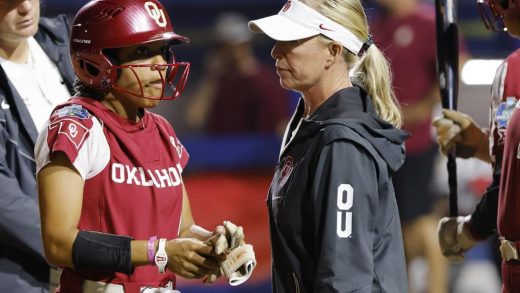:format(webp)/https://www.thestar.com/content/dam/thestar/entertainment/2023/02/27/jully-black-shares-barrage-of-racist-threatening-messages-after-national-anthem-lyric-change/afp_339m6zf.jpg)
Jully Black is speaking out about the racist messages she’s been receiving after her changing of the Canadian national anthem at the NBA’s All-Star Weekend earlier this month.
“This is what I’m getting as a BORN and raised Canadian #HateRunsDeep,” she tweeted early Monday morning alongside a screenshot of an email barraging her with racist messaging.
During her performance, Black changed a single word in the Canadian national anthem, singing “our home on native land” rather than “our home and native land” — a subtle but impactful reference to Canada’s colonial legacy and ongoing dispossession of Indigenous Peoples.
The lyric change led to praise from non-Indigenous and Indigenous Peoples alike, including Eva Jewell, the research director at Indigenous-led research centre Yellowhead Institute.
“Indigenous Peoples have been saying that line for decades actually — this is something that is known within our communities,” Jewell said to the Star’s Manuela Vega last week. “So, to see Jully uplift that into the national anthem … it showed me that she has seen us, she understands us; she gets it.”
Still, some weren’t happy with the lyrical change. Some also left racist comments under news articles about Black’s rendition, and in response to Twitter videos highlighting and celebrating it.
One critic sent an email addressed to Black questioning her “audacity” to change the national anthem while living in a “white majority country.”
“Who the f — k do you think you are? When I see your ugly face I see a manly looking, ungrateful middle aged black woman, who is deeply conflicted and always holds a grudge against Canadian society because she grew up always as the darkest kid in class,” the email sent to Black, which she then posted on Twitter, reads. “You watch and see what happens to you if you ever try and pull this s — t ever again.”
Tanya Tagaq, an Inuk singer, author and artist, replied to the post saying, “I don’t understand how many actual screaming crybabies there are in Canada. It’s one word of one song and it’s the truth.”
“This is the most disgusting thing I’ve ever read. We love you — the cowards are really feelin too fragile and threatened. Keep speaking the truth, Jully!” wrote Toronto-based band The Beaches.
Ahead of her performance during All-Star Weekend, Black said she asked some of her Indigenous friends how they would feel about her singing the anthem.
“And I got some feedback, and so I really dissected the lyrics, to really sing it with intention,” she said in an interview with TSN reporter Kayla Grey. “Now I’m singing it in a whole other meaningful way.”
The lyrics to “O Canada” have been changed many times since the song was first written in French in 1880, but it has only been changed once since the song became the national anthem in 1980.
In 2018, a bill to make the lyrics gender neutral — through the change of just two words — was signed into law. The amendment changed the anthem’s second line from “in all thy sons command” to “in all of us command.”
JOIN THE CONVERSATION



